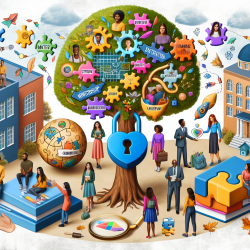In the spring of 2020, as nature blossomed outside, our schools faced unprecedented challenges indoors. The onset of the global pandemic forced educators into new teaching paradigms—remote, hybrid, and blended learning. These changes highlighted the importance of executive function (EF) skills for both educators and students.
Understanding Executive Function Skills
Executive function skills are high-level cognitive abilities that enable goal-directed behavior. Kelly Cartwright likens these skills to a company's chief executive managing operations to achieve objectives. Similarly, the Center on the Developing Child at Harvard University compares EF skills to an air traffic control center orchestrating complex processes.
These skills develop from birth and are shaped over 25 years. For adults, they often operate unnoticed, but the pandemic has brought them to the forefront as we navigate new challenges. Understanding our own EF skills allows us to empathize with students and appreciate their role in literacy development.
EF Skills and Literacy Development
Though EF skills have long been a focus in education, their connection to literacy is gaining attention. Research shows that EF skills are crucial for reading tasks and comprehension. They help coordinate components of reading and contribute directly to understanding text.
- Flexibility: Adapting to multiple pieces of information.
- Sustained Attention: Maintaining focus despite distractions.
- Response Inhibition: Controlling habitual responses.
- Working Memory: Retaining and updating information.
- Planning: Developing strategies to achieve goals.
The concept of graphophonological-semantic cognitive flexibility (GSF) highlights how EF skills enable readers to connect phonology, orthography, and meaning—a critical component for reading comprehension.
The Role of Reading Recovery
Reading Recovery, developed by Marie Clay, emphasizes EF skills in literacy education. Clay's literacy processing theory is grounded in constructivist learning principles that involve scaffolding, differentiation, and deliberate practice. This approach fosters self-regulated learners who can independently extend their learning capabilities.
The program's success lies in its ability to adapt instruction based on individual student needs, providing appropriate challenges that stimulate growth without overwhelming students. This aligns with research showing that well-structured settings can enhance EF skills through balanced challenge and support.
Moving Forward with EF Skills
The integration of EF skills into literacy education is essential for addressing current educational challenges. As we navigate new teaching methodologies post-pandemic, understanding the role of EF skills in literacy can guide effective instructional strategies.
For more information on the importance of executive function skills in literacy development, please follow this link.










